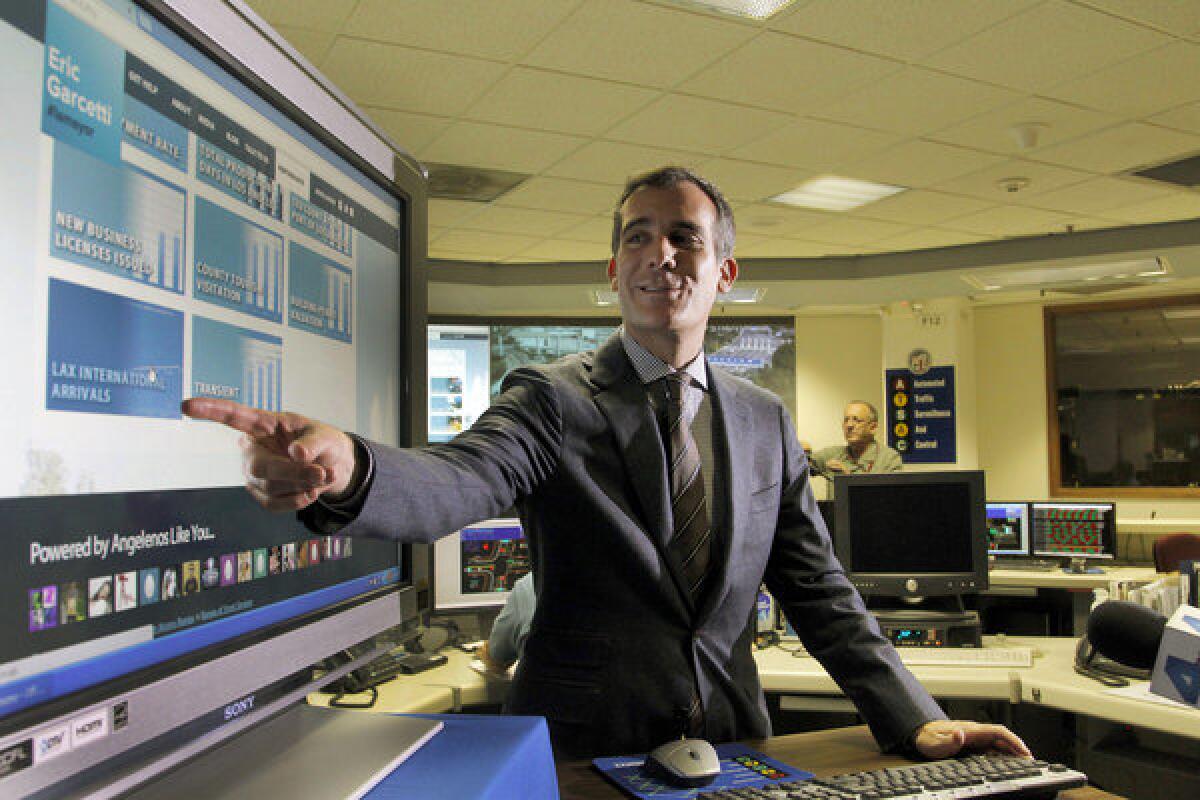L.A. City Hall’s data miners

It’s not exactly Big Data. Not yet, anyway. Los Angeles City Hall has so far given us two Big Burps of public information, one in the form of a website from the mayor’s office that measures the performance of city departments, and one from the controller making it easier to find out how much city workers and contractors get paid.
The numbers, by themselves, don’t necessarily mean much. But that’s OK. Local government has been generally behind the curve in sharing with the public the massive amounts of information it has on the money it collects and spends and on the services it provides; Los Angeles is about in the middle of the pack in catching up to the private sector in compiling and making use of operational and customer data. The point is that Mayor Eric Garcetti and Controller Ron Galperin have brought new thinking about who owns all that information — the public — and what government ought to do with it — release it. It’s the crucial first step. The more the better.
Constituents can see, for example, how many seconds it takes operators to answer service calls to 311 or how much money City Hall spent in January.
But could that data be misunderstood or misinterpreted? What if it lets the public focus on costs without fully grasping all the variables that lead policymakers to their decisions? What if it encourages Monday morning quarterbacking by cranky constituents or political challengers?
Too bad. The public doesn’t elect politicians to hoard information or use it to their own political advantage, and good for Garcetti and Galperin for beginning to level the informational playing field.
Besides, as wonky and as cutting edge as our officials may be, they will never match the collective wisdom and tech savvy of the public. Analysis should be done in-house, but it can simultaneously be crowdsourced: Let entrepreneurs, nonprofit service providers and neighborhood activists mine the data for apps, ideas and critiques.
City Hall’s job is threefold. First, it must ensure that the numbers are uncooked. The public owns the city’s raw data and should have ready access to the numbers to check City Hall’s math and examine its assumptions.
Second, City Hall must go beyond the initial first blush of performance metrics and turn the data into something useful. It’s great that Garcetti has posted the number of potholes filled, for example, but that tells us little unless we also know how many were filled last year and whether the city is on track to improve the performance, and by how much, and at what cost.
And third, the city must avoid data frenzy. It must not upend its mission or make decisions about which services to perform based solely on which functions can be most easily measured. Numbers are just tools. Government must still use judgment and leadership to set its agenda.
More to Read
A cure for the common opinion
Get thought-provoking perspectives with our weekly newsletter.
You may occasionally receive promotional content from the Los Angeles Times.






